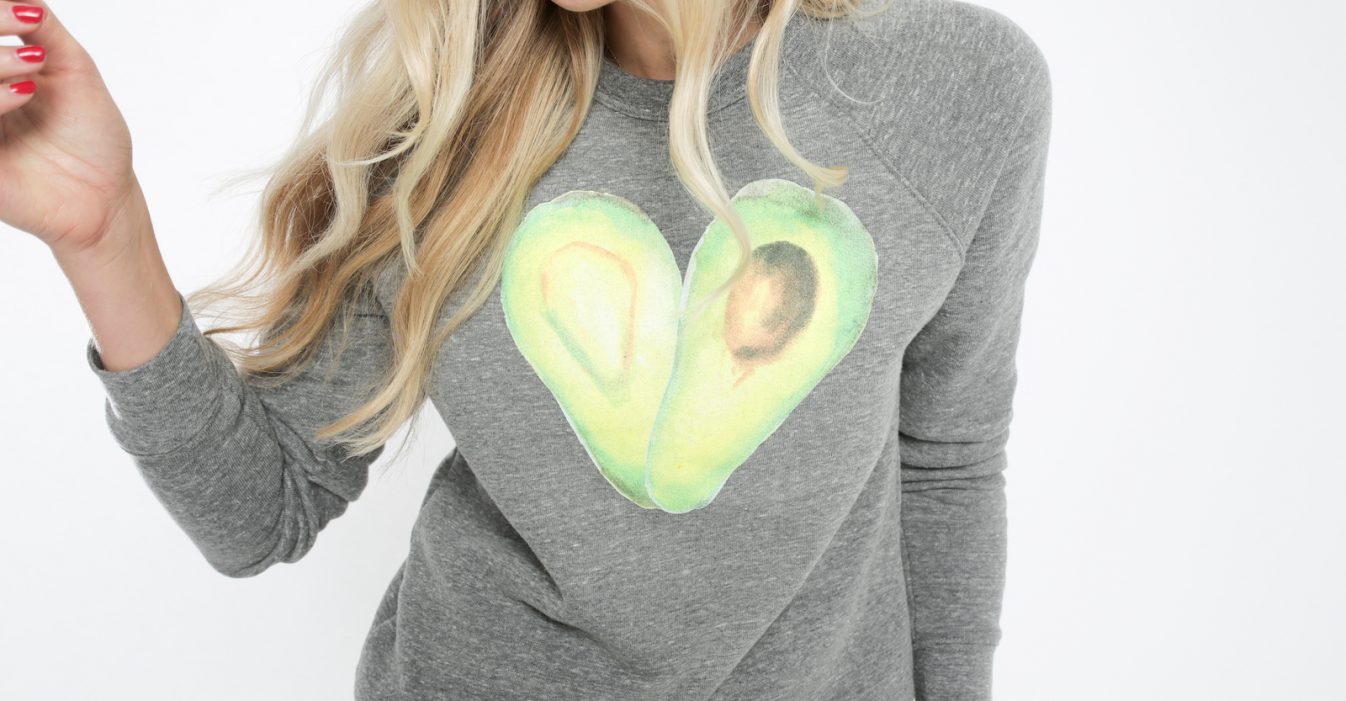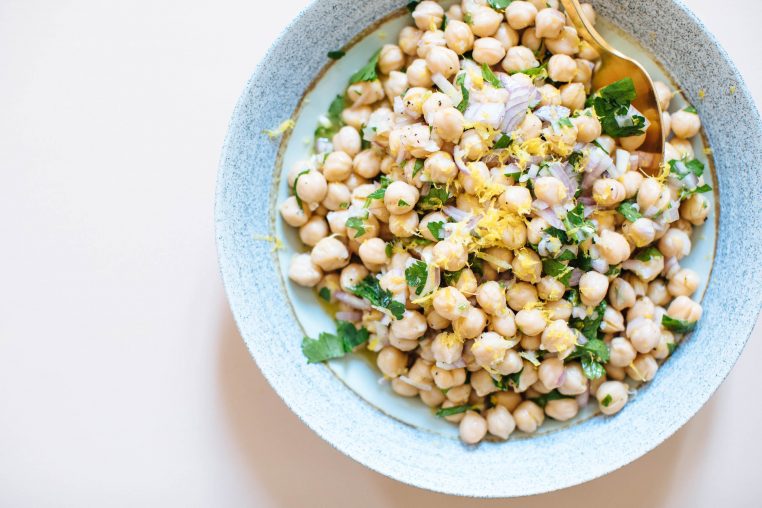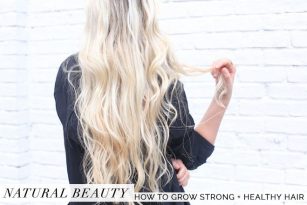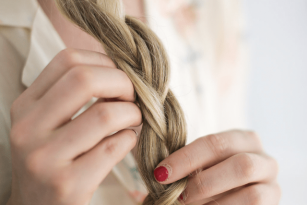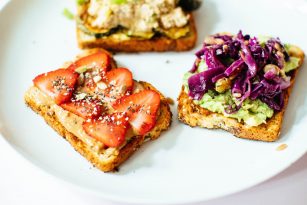We all know nutrition plays a key role in our hair, but what are great food choices to facilitate growth?
Did you know we are all losing hair? We typically lose about 100 hairs per day! For most of us, it’s not noticeable due to our constant hair cycle, growing more hair as we naturally shed some. Hair loss happens when this cycle of shedding and growing new hair is interrupted.
Hair loss can feel like a taboo topic to speak about especially amongst women when the hair loss product category is focused so heavily on men. Not to mention, it’s typically a difficult topic to speak about when many have feelings of embarrassment or shame around it since hair is part of our visual identity.
Who Experiences Hair Loss?
According to the American Academy of Dermatology, 40% of women by the time they reach 40 experience hair loss.
We get many readers from the NS Community who are women, around the age of 30 or mid-’30s dealing with hair loss asking for guidance on how to fix the issue. While there’s not one established reason why hair loss occurs nor one solution to remedy it, there are some factors to consider why it’s occurring and how to support your body and health.
There are many factors that play a role in the health of your hair — impacting the length, strength, and time it takes to grow. Hair growth and the overall health of our hair is impacted by our lifestyle choices, diet, and of course how we style or products used on hair.
I’m sure you’ve seen supplements claim to help you grow your hair, but do those really work? We’re breaking down key nutrients involved in maintaining healthy hair and preventing hair loss, which depending on other unique factors, may help support hair growth, strength, and overall hair integrity.
5 Nutrition Reasons You May Be Experiencing Hair Loss
- Not enough calories or overall energy intake in the diet
- Not enough protein in the diet
- Not enough iron in the diet
- Not enough B-vitamins in the diet
- Not enough zinc in the diet
Calories
I often have female clients who seek guidance to increase their energy, learn how to establish better habits, work on their relationship with food, and improve their skin and hair.
The most common nutrition-related reason for hair loss I see in our practice is women not eating enough calories as a whole, let alone some of the key macro and micronutrients listed below such as protein.
Remember that your hair, skin, nails can be treated as an “accessory” compared to vital organs such as the heart and brain. If you’re not consuming enough calories for your body to carry out incredibly important functions such as thinking, breathing, maintaining core body temperature, etc. then there’s little room for extra “energy” to nourish your hair, skin, and nails.
Typically I see clients hair growth within 4 months after establishing a nutrition plan that meets their unique needs with adequate protein, healthy fat, and minerals. In addition to a nutrition plan, stress management and getting to the root issues of any potential nutrient deficiencies, hormone imbalances, digestion issues, etc. can play a role as well.
Protein
Did you know your hair is made up of a protein called keratin? Our hair is literally protein. If you’re not consuming enough protein or in the correct way if you’re heavily plant-based or vegan, then you may be missing out on amino acids and common micronutrients found in protein food sources.
Diets low in protein can contribute to hair loss over time, receding hairline, brittle hair, changes in hair color, or dandruff or dry scalp.
Iron
Iron isn’t just for helping our red blood cells carry oxygen to cells, it also plays a vital role in hair growth.
Iron deficiency anemia can cause hair loss, but some studies show that when the deficiency is addressed (i.e. normal iron stores have been achieved) then hair growth and the hair cycle should return to normal. (1) (2)
Everyone is different, but if you have hair loss and anemia, then work with your health care team to increase iron-rich foods in your diet and potentially supplement until normal.
B Vitamins
All B vitamins play an important role in our hair health, but the most popular is biotin, and people who have a biotin deficiency typically have hair loss. (3)
B vitamin deficiencies, except B12, are not that common since B vitamins are in so many whole foods from plant to animal sources. B12, in particular, is found in animal proteins so those who follow a vegan diet are more susceptible to a B12 vitamin deficiency.
B vitamins play an important role in energy metabolism, nerve function, cell turnover, and play a role in carrying oxygen to cells including the cells on our scalp.
Scalp health is incredibly important to the health of our hair follicles which contributes to hair growth or loss if the scalp isn’t in a healthy state.
Zinc
Nutrition isn’t the only way to maintain the health of your hair — stress, hormones, and certain health conditions can impact hair loss, hair growth, and hair health.
Other nutrients or macronutrients in the diet that are important for hair health include omega-3 fatty acids, and vitamins A, D, E, C.
5 Additional Reasons You May Be Experiencing Hair Loss
- Health conditions including but not limited to thyroid issues, autoimmune, food allergies, etc.
- Genetics or epigenetics
- Stressful life events or chronic stress
- Hair products, styling, and general care
- Certain medications
In addition to supporting your body with great nutrition, our lifestyle, certain health conditions, and even stress levels can take a toll on our hair.
NS Verdict
There are many factors that play a role in the health of your hair, preventing hair loss, and supporting new hair growth.
Taking a conscious and closer look at your lifestyle and overall quality of nutrition in your diet can help you on the path to discovering reasons why hair loss is occurring.
As always, work with your Registered Dietitian and specialty physicians who can support you in getting to the bottom of the issue.

